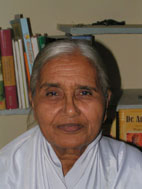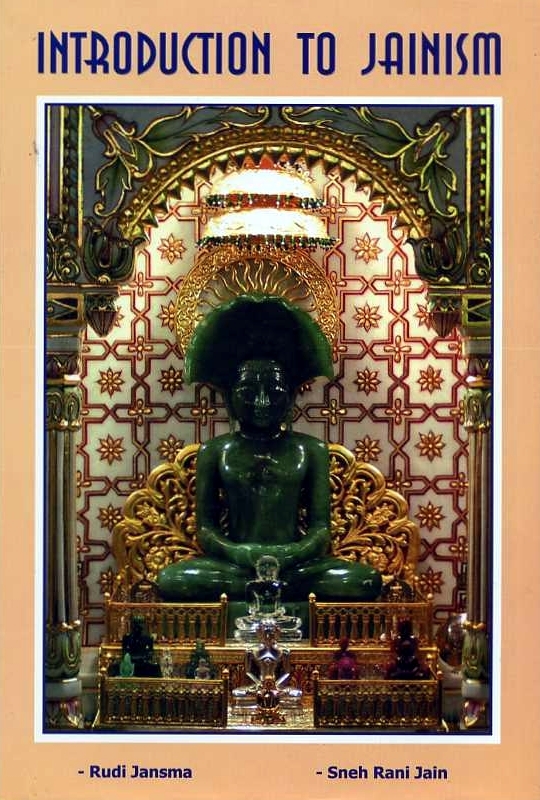If you know that you have done something that was not right, it may be an additional psychological burden to know that you will have to face the consequences. Even if we regret, if we are absolutely sure we will never make the same mistake again, even if we go to our temples and churches to pray - what we have sown we ourselves will have to reap.
This is a harsh teaching. But is it true? It takes courage to accept that we have a lot to answer for that never can be reversed. Billions of people believe in forgiveness from heaven, in indulgence from their churches or their gods, and around the world we find people praying to their God or gods to make life run smoothly. Is karma just as absolute as “fate,” with the only difference that the former is just and the latter arbitrary (at least in the modern view)? Should, for example, Muslims continue to believe that the terrible earthquakes, all their victims of war, and their daily humiliation by those who belong to other cultures, are the result of the Mercy of Allah, Who at the same time seems to pay no attention at all to their prayers?
Personally I tend to think that if there is a God or gods that care for us, they do not have to be begged for help. They know better what we need than our brain-minds. They may without our knowing do much more for us than we think, and due to their wisdom and compassion they do more good than we could suppose, but they help in the evolution of our souls, not the fulfillment of our personal wishes.
As I see it, several approaches are possible to this problem. What has been sown, has been sown. That applies to good things as well as bad things. But we do not complain about the results of the first category. If in some miraculous way I could be freed from the karma of a particular sin or crime, the suffering that has been undergone by others as a result of my action has already happened, and can never be undone. Even if the victim, or “God” will forgive us our deeds, what has been done, has been done. The mental, physical and emotional forces that were evoked and strengthened by my actions - both within myself and within my victim, will continue to have a link with me and will manifest their fruits one day.
Courageous people who have entered “the Path” want justice only, because in the highest philosophical sense karma and justice are identical. Therefore it is a precept for a Jain, Buddhist, Christian, Theosophical or any other religious disciple to accept all the karmic fruits one receives dauntlessly and fearlessly, however challenging they may be.
Yet we see that Jain and Buddhist monks are constantly involved in efforts to purge the karma they have attracted. Through their purity and purifications karmas can return their grip. You won’t invite thieves if you have nothing to steal. Though what has been sown cannot be undone, a plant can grow in many ways. If you give it more water and fertilizer it may grow and flower and bear fruit soon - you speed up the ripening of karma. Religious vows may work as “fertilizer” on our karmic seeds or saplings. Alternatively a plant can be trimmed and numerous small stems instead of one firm trunk may grow. The nature of a particular karma cannot be destroyed, but its energy can be redirected. If one does not interfere with a disease - as is the practice of the Jain monks - the particular karma will exhaust itself. This is the way of nature. But not all of us are advanced disciples on the spiritual path. If we have a problem, we seek help. If we are ill, we go to a doctor. A bad doctor suppresses the outer manifestation of the disease and therewith obstructs karma. He seems to help, but in fact he does the opposite. Reasoning or meditating away a disease is even worse, because that compels karma to seek another way out, and in such a way that our human “wisdom” has no more grip. But is there no forgiveness whatsoever for us “common” people in our compassionate universe? Forgiving is mentioned in many sacred scriptures as a divine quality, and we are told that we should practice forgiveness in even the most difficult circumstances. Christianity especially emphasizes this attitude, but the teaching is found everywhere. If we really could forgive there would be no wars in the world, no setting of scores in criminal circles, no hatred and envy between people at work or at home. But God or the gods themselves let us perish in our karmic mire!?
Karma cannot be destroyed, but it is possible to create a counterbalance. Good deeds may “interfere” with bad karma in such a way that the result becomes diluted or more neutral. Of course there is a difference between a thief continuing to steal, or deciding to stop and become an altruistic benefactor. The suffering he has created to others must of course bear its fruits, but the circumstances in which this takes place are also karmic. This also explains why very good people sometimes face “unmerited” setbacks. A particular karma ripens, but in the meantime that person has builds a character that has more stamina to bear and handle the difficulties. Monks specialize in doing, thinking and feeling good things only. But they can suddenly be hit by disaster, a payment for an old karmic bill from nobody knows how long ago, but they regard it as a blessing.
A good doctor - if we decide to call for his help - does not try to banish our just reward, but guides a disease in such a way that it can fully express itself without killing the patient. Nature herself offers us countless remedies in the form of herbs, minerals, sun, water, air and light. Muslims told me that according to their belief there is no disease to which there is no cure - one merely has to find the remedy. We are attached to life and to our duties. Certainly it would bring no inflow of good karma if, for the sake of our own spiritual progress, we chose death rather than accept medical help, because if we make this choice consciously, we are completely inattentive to all those who are benefited by our present existence. We would cause them unnecessary suffering.
To quote a theosophical writer:[33] “Nature is full of beauty - spiritual splendor is the essence of every manifestation - so may we not use the means she offers to lighten our burden and soften our pain? Should we not allow her to be our teacher and helper? Practical compassion is all around us, but we ourselves are responsible for our mental and emotional attitudes. We ourselves must practice compassion to all to become equal to our teachers. We will attain what we ardently strive for. The innate potentialities of the universe are before us, but only he whose note chimes with that of the over-mastering law - the law of compassion - can hold his victories!”
A wise person will accept his full burden, but perhaps not everything at once. He may choose to spread, and carry as much as he can at the most suitable (though not necessarily the easiest) moments. For a spiritually advanced monk or disciple things may be a little different. I once asked a monk, “If you were suddenly in a position to kill a ‘Hitler,’ a person who brings great suffering to millions of others, would you do so?” He answered, “No, because I have made a vow not to kill any creature in any circumstance.” He added, “But you could do that, because you are not bound by a vow.” I was shocked.
This seemed to me the acme of spiritual selfishness. Rather have six million Jews killed in gas chambers than accept some delay on one’s own spiritual path! Is that compassion!? According to Jains it is. What it is all about is that there are different levels of viewing the world. There comes a moment when one sees beyond the boundaries between life and death (and not only theoretically), and sees that the path of the soul is far more essential and everlasting than that of physical existence; when one really knows the purpose of existence, of the soul clothed in several invisible garments, and understands that karma takes place not only on earth, but also in the “hereafter.” The practice of compassion then becomes something that entirely transcends what we in the world call compassion. But for me as a “common” man I think the best thing I can do is to train myself in “common” compassion.
Karmic fruits can be harvested in various ways. If they taste sweet we may get attached to them, and perhaps wander from the spiritual path. If they are sour, we can struggle on through our faith, protesting either loudly or silently. But once we have become indifferent to illusions - of course karmas are also illusions - we no longer suffer. If we are not attached to money, why then suffer if something is stolen from us? If our mind is focused on higher thinking and meditation, we perceive physical pain, but do not suffer psychologically. The monks said to me that if you meditate on the fact that in reality you are not your body (but in essence a free soul) your physical suffering becomes a futility and no obstacle whatsoever, but on the contrary helps you to strengthen your character and to master your spiritual energies. If we use the forces of our soul, our sins are “forgiven,” i.e. automatically weakened. Compassion, karma and forgiveness are three aspects of the same truth.
 Dr. Sneh Rani Jain
Dr. Sneh Rani Jain
 Publisher:
Publisher: